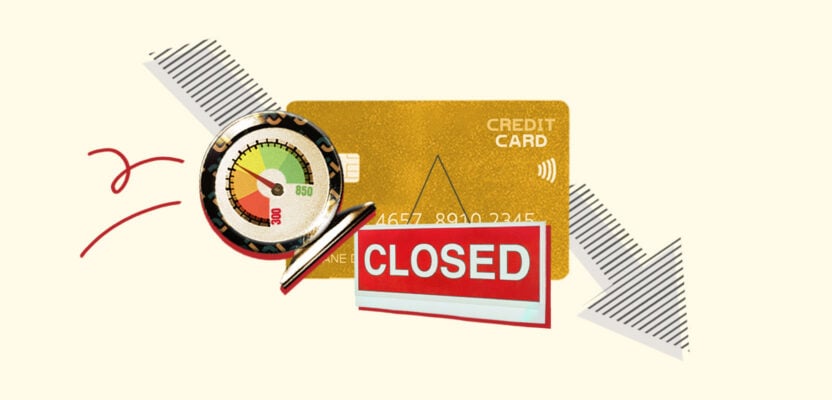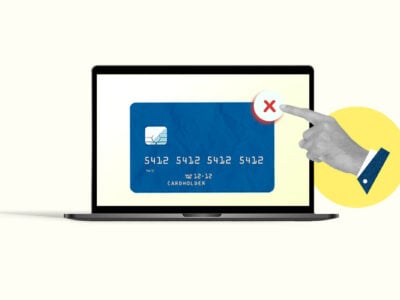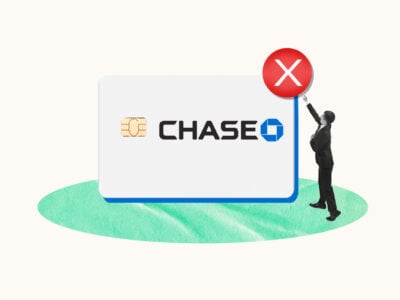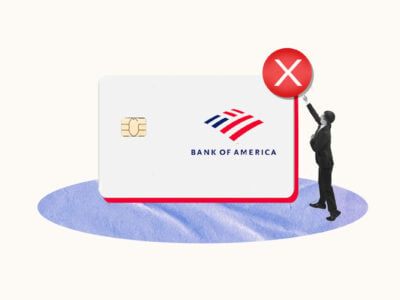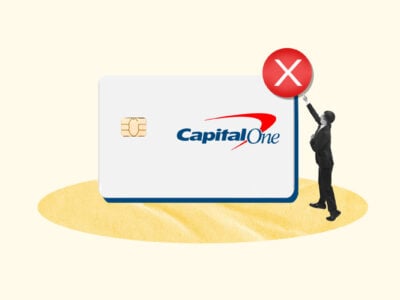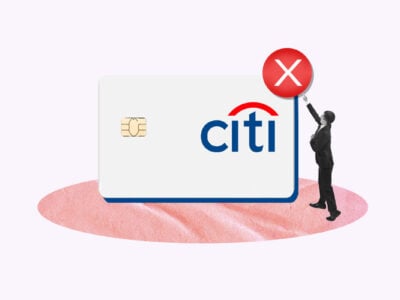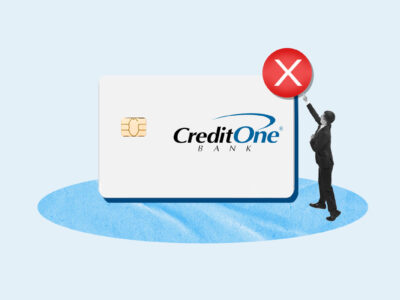If you have multiple credit cards, a time may come when you need to close one of them. While there are many good reasons to cancel a card, doing so comes with consequences. Specifically, closing a card will usually hurt your credit score.
Table of Contents
How does canceling a credit card hurt your credit?
Here are the two main ways that canceling a credit card can affect your credit score:
1. Closing a card will raise your credit utilization rate
Canceling a credit card lowers your available credit, which in turn raises your credit utilization rate—the amount of credit that you’re using.
As credit utilization counts toward 20%–30% of your credit score (depending on the credit scoring model), raising your utilization ratio could have a severe impact on your score.
How credit utilization works when you close a credit card
Your credit utilization is calculated by dividing your current balance by your total available credit. A lower rate (expressed as a percentage) means you’re using less credit, which signifies that you’re a responsible borrower.
Credit experts recommend keeping your rate under 30% at most, with many claiming that under 10% is the true mark to hit. 1
Here’s an example of how closing a credit card could impact your credit utilization:
- You have 3 credit cards. Card A and Card B have credit limits of $2,000 each, Card C has a limit of $1,000.
- You have a total credit limit of $5,000.
- You’re currently using $1,000 of this available credit, making your utilization rate 20% ($1,000 / $5,000 = 0.2).
- Say you close Card A, reducing your available credit to $3,000.
- Assuming you continue to have a total balance of $1,000, your credit utilization rate is now 33% ($1,000 / $5,000 = 0.33).
Even though you’re borrowing the same amount of money as before, your credit utilization is now above the recommended limit because you reduced your available credit. Going from a 20% utilization rate to a 33% utilization rate will drop your credit score.
Keep in mind that you can manage this impact by borrowing less or by opening new lines of credit to raise your available limit, as your credit utilization will always be determined by how much credit you have and use in relation to each other.
2. Canceling a card may affect your credit mix
Credit mix refers to how many types of credit accounts you have (e.g., credit cards, mortgages, student loans, auto loans). Your credit mix accounts for 10%–20% of your credit score, as it’s an important indicator of how well you can manage a diverse credit portfolio. The more types of accounts you have open, the better.
Closing a card eliminates one of your accounts from your credit mix. The impact of this will depend on what other accounts you have open.
If the credit card you’re closing is your only line of revolving credit (i.e., your only credit card), you may want to think twice, as closing this account will likely have a large impact on your score. On the other hand, if you have a lot of other cards, the impact on your credit mix will be slim to nonexistent.
Is it bad to cancel a credit card?
Just because it poses a risk to your credit score doesn’t mean canceling a credit card is always bad. In fact, it’s sometimes even necessary.
Whether you should cancel your credit card or not will come down to a cost-benefit analysis. There are many good reasons to cancel your credit card, for example:
- You’ve been a victim of fraud and the account has been compromised.
- You’re trying to use less credit and you want to remove the temptation to use the card.
- The annual fees on the card are too high.
- You’re trying to pay off credit card debt and your lender is requiring you to close your card as part of a repayment plan.
- You don’t use your credit card and it’s at risk of being cancelled.
- Your credit card interest rate is too high.
Canceling for one of these reasons could easily be worth it, based on the long-term benefits. However, if your reasons for wanting to cancel are less firm, consider whether keeping the card open is worth avoiding a possible drop in your credit score.
If you decide canceling is the best option, make sure you cancel your credit card the right way to avoid unnecessary financial or credit damage.
Alternatives to canceling your credit card
If you don’t want to suffer the credit score drop that may come from canceling your card, there are some alternative options you can consider:
- Negotiate your APR: If you’re frequently carrying a balance and getting charged interest at a high rate, you can lower your credit card APR by contacting your issuer and requesting a new interest rate.
- Switch cards: Many credit cards have the option to downgrade or upgrade to a similar card from the same issuer. If you want a card with a lower or annual fee, for example, there may be an option to downgrade to a fee-free card with fewer benefits. Or you can hunt for a new no-annual-fee credit card.
- Track your credit card use: If you’re debating closing your card because you’re consistently overspending, try to keep the card open and adjust your financial habits instead. There are tons of free apps and programs that offer spending tracking so you can easily change your financial habits and keep your expenses under control.
